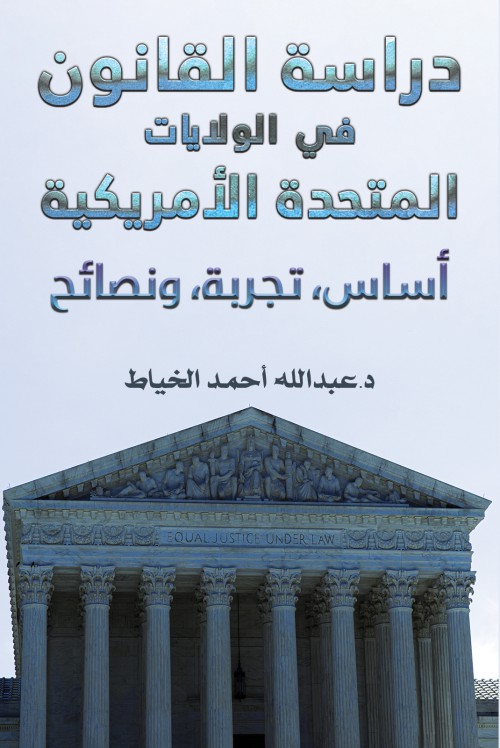-
Study The Law In The United States Of America
This book highlights the peculiarity of the study of law in the United States of America, in which the law is viewed in a different light than that viewed by jurists in countries with a Latin legal system, and even in countries which adopted the Common Law system. The development of the concept of law in the United States developed in a way which is like no other.
With God’s blessing, I was given the opportunity to study for a master’s and doctorate in law in the United States for five years, beginning on the East Coast at Georgetown University in Washington, D.C., and ending on the West Coast at the University of California, Berkeley.
During these years, I mostly engaged in an internal process of discussion and reflection, related to the major comparison between my study of law in Kuwait and that which I lived day to day as a scholarship student in the United States.
Through this, I became convinced that we Arab jurists (law students, lawyers, judges, and university professors) do not know much about that uniqueness, and that we need a book to be added to our Arab library that gives us glimpses of this difference, and helps those wishing to study bachelor’s, master’s, and doctorate degrees in law to discover those important differences, and to hear some advice about admission to these programs that they won't find written down somewhere, that no one has said to them before.
 70.00
70.00
-
On Justice
The book is a study in the philosophy of law, in which the author talks about justice as an absolute value and as a supreme human value. Through his research, he differentiates between justice in the upper world or a metaphysical world, and justice in the human being’s world or the ground world.
The writer discusses the impossibility of absolute justice in the ground world, and that the eternal laws that govern the movement of human life on the ground impose a justice that is human in its nature and relative in its value.
This book argues that the law and the judiciary are the two pillars on which justice is based in human societies. It also explains that achieving justice as a supreme human value develops through the performance of these pillars by focusing on administrative law and consensual judiciary.
 35.00
35.00
We use cookies on this site to enhance your user experience and for marketing purposes.
By clicking any link on this page you are giving your consent for us to set cookies


